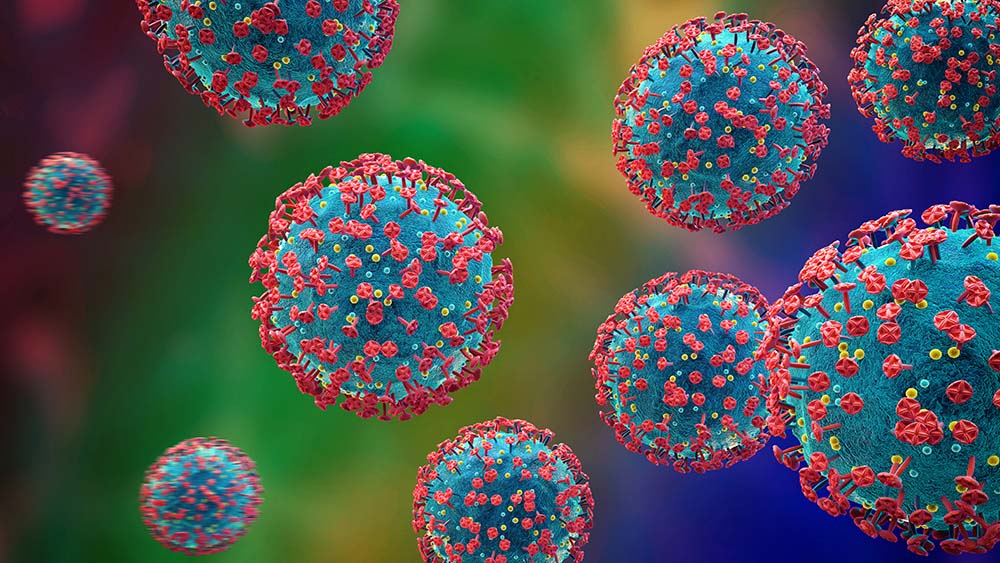
Researchers have found that Paxlovid (nirmatrelvir and ritonavir) is effective at preventing severe COVID-19 resulting from infection by the Omicron variant of SARS-CoV-2.

Researchers have found that Paxlovid (nirmatrelvir and ritonavir) is effective at preventing severe COVID-19 resulting from infection by the Omicron variant of SARS-CoV-2.
What you need to know
Antiviral drugs can lower the risk of severe illness and death from viral infections. In 2021, a clinical trial showed that Paxlovid — an antiviral treatment known generically as nirmatrelvir and ritonavir — reduces the risk of severe COVID-19. Since then, the antiviral treatment has been administered more than 7.6 million times and is available by prescription at more than 40,000 locations in the United States.
The study that showed the effectiveness of Paxlovid occurred when the Delta variant was the dominant strain of SARS-CoV-2, the virus that causes COVID-19. In a new study supported by the National Institute of Allergy and Infectious Diseases and the National Cancer Institute, researchers have found that the drug still reduces risk of hospitalization and death from the Omicron variant of SARS-CoV-2.
What did the researchers do?
Researchers at Brigham and Women’s Hospital examined medical records from patients age 50 and older who had received a COVID-19 diagnosis in the first six months of 2022 (when Omicron variants were dominant). The records came from the Mass General Brigham health care system, which serves 1.5 million patients per year in Massachusetts and New Hampshire.
The researchers compared about 12,500 people who had received a prescription for Paxlovid and about 32,000 people who had not. The researchers examined several characteristics of members of these two groups — such as vaccination status, age, race, and ethnicity — in order to understand what may have led to differences in prescription uptake and patient outcomes.
What did they learn?
The researchers found that people who had received Paxlovid had a 44% reduced risk of hospitalization or death from COVID-19 compared with those who did not receive the treatment. For people who had not been vaccinated, the risk of hospitalization or death was 81% lower if they took the antiviral drug.
The researchers found that people who identified as Hispanic, Latinx, or Black were less likely to be prescribed Paxlovid than patients who identified as White were. Further research is necessary to understand the cause of this disparity.
Why is this research important?
Paxlovid is an effective antiviral drug that reduces the risk of hospitalization and death against COVID-19, including cases caused by the Omicron variant. If you get COVID-19 and are at higher risk for severe disease, talk to your doctor about whether the treatment is appropriate for you.
Where can I go to learn more?
Paxlovid reduces serious risks from Omicron variants
-
Wider use of Paxlovid may help temper a winter surge of COVID-19, as some other treatments are no longer effective.
Researchers Discover Potential New Antiviral Against COVID-19
-
NMT5 coats the receptors of healthy cells and temporarily changes their shape, making it harder for SARS-CoV-2 to infect the cells.
Antiviral Nasal Spray Shows Promise Fighting COVID-19
-
Nasal sprays may be a promising first line of defense against SARS-CoV-2 infection.
Sources
Administration for Strategic Preparedness and Response. COVID-19 Therapeutics Thresholds, Orders, and Replenishment by Jurisdiction. https://aspr.hhs.gov/COVID-19/Therapeutics/Orders/Pages/default.aspx
Dryden-Peterson, S., Kim, A., Kim, A. Y., Caniglia, E. C., Lennes, I. T., Patel, R., Gainer, L., Dutton, L., Donahue, E., Gandhi, R. T., Baden, L. R., & Woolley, A. E. (2023). Nirmatrelvir plus ritonavir for early COVID-19 in a large U.S. health system: A population-based cohort study. Annals of Internal Medicine. Advance online publication. https://doi.org/10.7326/M22-2141

News and Stories
Read stories about the efforts underway to prevent, detect, and treat COVID-19 and its effects on our health.
 An official website of the United States government
An official website of the United States government

